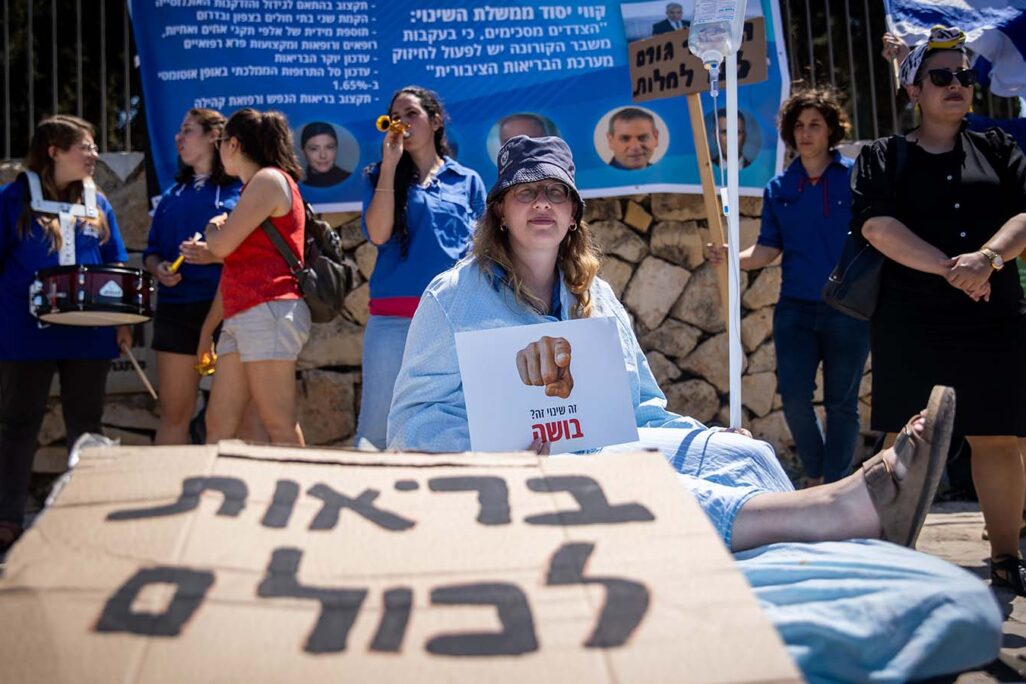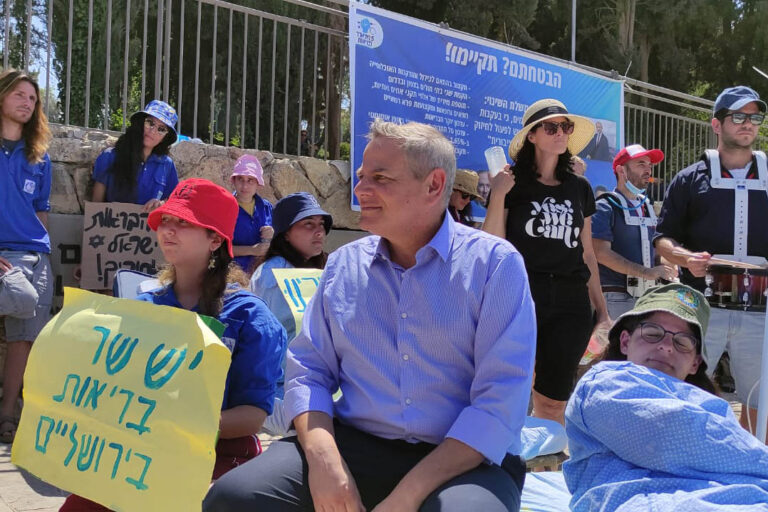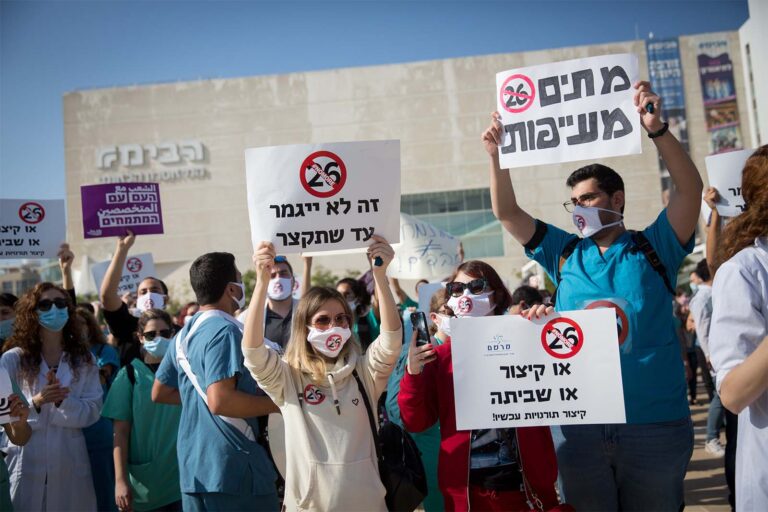
Israel’s new state budget, approved by the cabinet this past Monday, will add an additional two billion shekels ($620 million) to the healthcare system in 2022. Combined with the three billion shekel ($940 million) increase that had already been planned, this will bring the total annual healthcare budget to 43 billion shekels ($13 billion). This will amount to about 8% of the 560 billion shekels ($175 billion) of fiscal expenditures planned for 2022.
The decision follows a campaign led by the “Five Billion for Healthcare” movement, a forum made up of about 80 different healthcare groups, including the Israel Medical Association and the Nurses’ Union, as well as several youth movements. The forum demanded a five billion shekel ($1.6 billion) increase to the healthcare budget in order to accommodate Israel’s aging population and get Israel’s per-capita healthcare budget in line with those of other OECD countries.
Health Minister Nitzan Horowitz and leader of the left-wing Meretz party, had previously spoken out about his insistence on increasing the healthcare budget.
“There is nothing more important to the state than a healthcare budget, and the Finance Minister and the Prime Minister need to understand that,” he said to a group of demonstrators gathered outside the cabinet meeting on the state budget.

The agreed-upon clauses in the new healthcare budget include:
- The allocation of 400 million shekels ($125 million) for the construction and renovation of mental health centers and psychiatric hospitals. As part of the first phase of this program, 400 long-term psychiatric hospital inpatients will be transferred to community settings.
- The development of psychiatric crisis teams within HMOs that will serve patients at their homes.
- The implementation of a program to shorten wait times for psychotherapy at the HMOs.
- The correction of the demographic coefficient in the healthcare budget’s population-driven formula. A previous version of this formula did not accurately reflect Israel’s aging population. The corrected demographic coefficient is expected to automatically increase the healthcare system’s budget by more than 130 million shekels ($41 million) in 2022.
- An increase of 100 million shekels ($31 million) to the budget of the Healthcare Services Basket. The Healthcare Services Basket is the list of medicines and treatments that are subsidized by the public healthcare system, and an increased budget will allow more drugs and other treatments to be subsidized. This increase will bring the total budget of the Healthcare Services Basket to 600 million shekels ($187 million) compared to the 500 million shekels ($156 million) budget in recent years. Fifty million shekels ($16 million) of the budget will be allocated to a national preventive medicine program.
- The allocation of six new MRI devices to be placed in the country’s periphery. In a first, these devices will be transferred to the HMOs, rather than hospitals, to maximize their use by the community.
- An increase of about 500 million shekels ($156 million) to the public hospital budget.
- The long-term hiring of the healthcare workers who had been hired through an emergency budget. In total, 600 doctors, 1,550 nurses and 700 administrative workers and paramedical staffs will be able to keep their jobs.
- The addition of 270 new slots for medical students and 1500 new slots for nursing students.
- The implementation of a multi-year initiative to shorten interns’ shifts. Currently, Israeli medical interns work 26-hour shifts. As part of the initiative, the shifts of interns in the country’s periphery will be shortened immediately to 16 hours in the following departments: emergency medicine, internal medicine, pediatrics, women’s health, neurology and radiology.
- The continuation of the national plan to increase hospital capacity.
- The implementation of a project to provide health insurance for the undocumented immigrants in Israel.

Nadav Chen, CEO of Laniado Hospital in Netanya, was dissatisfied with the 500 million shekels ($156 million) increase to the public hospital budget.
“The real need is 1.2 billion shekels ($374 million). If [500 million shekels] is the final number, then we have received less than half of that,” Chen said. “It’s not enough. We will need to ‘beg for charity’ from the Treasury or donors in the coming years. It’s just a shame.”
Shmulik Ben Yaakov, chairman of the Society for Patients’ Rights, expressed a similar sentiment, arguing that the system needs a more significant infusion of cash if it is going to actually be able to provide affordable healthcare for all.
“There are no positive developments for the healthcare system in the budget. We are fighting to create a normal system for everyone,” Ben Yaakov said.
Ben Yaakov sees a direct connection between the underfunding of the public system, which proved its strength during the pandemic, and wealthier citizens’ flight to private medicine.
“Today, 80% of the population are members of the premium HMO plans, and 40 to 45% of people have private insurance,” he noted. “Medicine is a basic right for everyone.”






